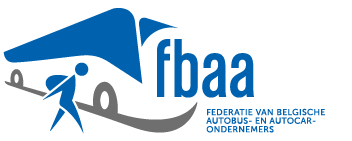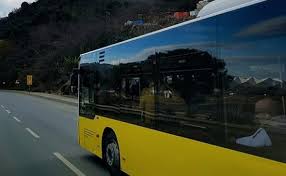Members page
Member: Federatie van de Belgische Autobus- en Autocarondernemers (FBAA) / La Fédération belge des exploitants d’Autobus et d’Autocars (FBAA)

Address:Avenue de la Métrologie 8, B-1130 Bruxelles
Contact: Pieter Van Bastelaere
Phone: 0
E-mail: pieter.vanbastelaere@fbaa.be
Website: https://www.fbaa.be
Company description:
The Federation of Belgian Bus and Coach Operators (FBAA) is the only Belgian professional association in the sector of paid collective road passenger transport. It has 350 members and represents 12,000 jobs. The member companies are active in three areas:
- regular public transport (fixed lines)
- special regular public transport services (transport of students and employees)
- occasional services (tourist excursions by coach).



